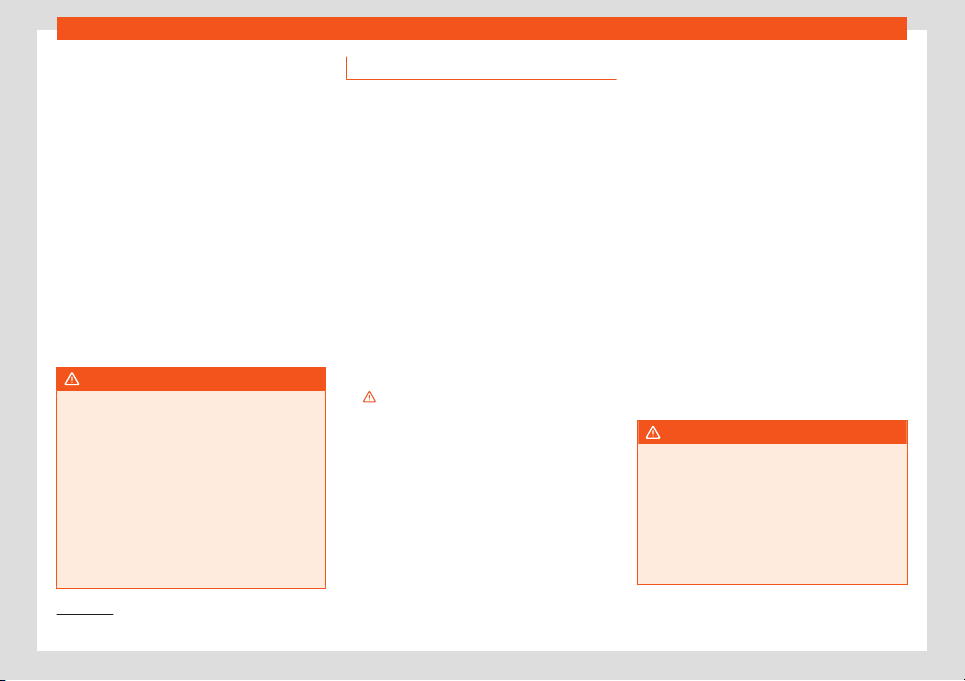Loading ...
Loading ...
Loading ...

Practical tips
max. 150 km/h (93 mph)
max. 160 km/h (99 mph)
max. 1
70 km/h (
106 mph)
max. 180 km/h (
1
12 mph)
max. 190 km/h (
1
18 mph)
max. 200 km/h (
124 mph)
max. 210 km/h (130 mph)
max. 240 km/h (149 mph)
max. 240 km/h (149 mph)
max. 270 km/h (168 mph)
max. 300 km/h (186 mph)
Some manufacturers use the letters “ZR” for
tyres with a maximum authorised speed
above 240 km/h (149 mph).
WARNING
●
New tyres do not have maximum grip dur-
ing the first 500 km. Drive par
ticularly
carefully to avoid possible accidents.
●
Never drive with damaged tyres. This
may cause an accident.
●
If you notice unusual vibrations or if the
vehicle pulls to one side when driving, stop
the vehicle immediately and check the
tyres.
●
Never use old tyres or those with an un-
known history of use.
P
Q
R
S
T
U
H
V
Z
W
Y
New wheels and tyres
It is best to have all wheels and tyres serviced
by a specialised workshop. There they have
the required kno
wledge, the special tools and
the corresponding spare parts.
●
Even winter tyres lose their grip on ice. If you
have installed new tyres, drive the first 500
km carefully and at a moderate speed.
●
All four wheels must be fitted with tyres of
the same type, size (rolling circumference)
and, if possible, tread pattern.
●
When changing tyres, do not change just
one; change at least two on the same axle.
●
If you want to equip your v
ehicle with a
combination tyres and rims that are different
to those fitted in the factory, inform your spe-
cialised workshop before purchasing them
›››
The sizes of the rims and tyres approved for
your v
ehicl
e ar
e list
ed in the v
ehicl
e docu-
ment
ation (e.g. EC Certificate of Conformity
or COC document
1)
). The vehicle documen-
tation varies depending on the country of res-
idence.
If the type of spare wheel is different form the
normal wheels — e.g. in the case of winter
tyres or particularly wide tyres — the spare
wheel should only be used temporarily in the
event of a puncture, and the vehicle should
be driven with care. Refit the normal road
wheel as soon as possible.
In vehicles with four-wheel drive, the 4 wheels
must be fitted with tyres of the same brand,
type and tread so that the traction system is
not damaged by a difference in the number
of turns of the wheels. Therefore, in the event
of a puncture, only a spare wheel with the
same perimeter as normal tyres should be
used.
Manufacturing date
The manufacturing date is also indicated on
the tyre sidewall (or on the inside face of the
wheel):
DOT ... 2218 ...
it means, for example, that the tyre was man-
ufactured in the 22nd week of 2018.
WARNING
●
Use only combinations of tyres and rims,
as well as suitable wheel nuts, appro
ved by
SEAT. Otherwise the vehicle may be dam-
aged, causing an accident.
●
For technical reasons it is not possible to
use wheels of other vehicles; in some cases
not even wheels from the same vehicle
model should be used.
1)
COC = certificate of conformity.
364
Loading ...
Loading ...
Loading ...